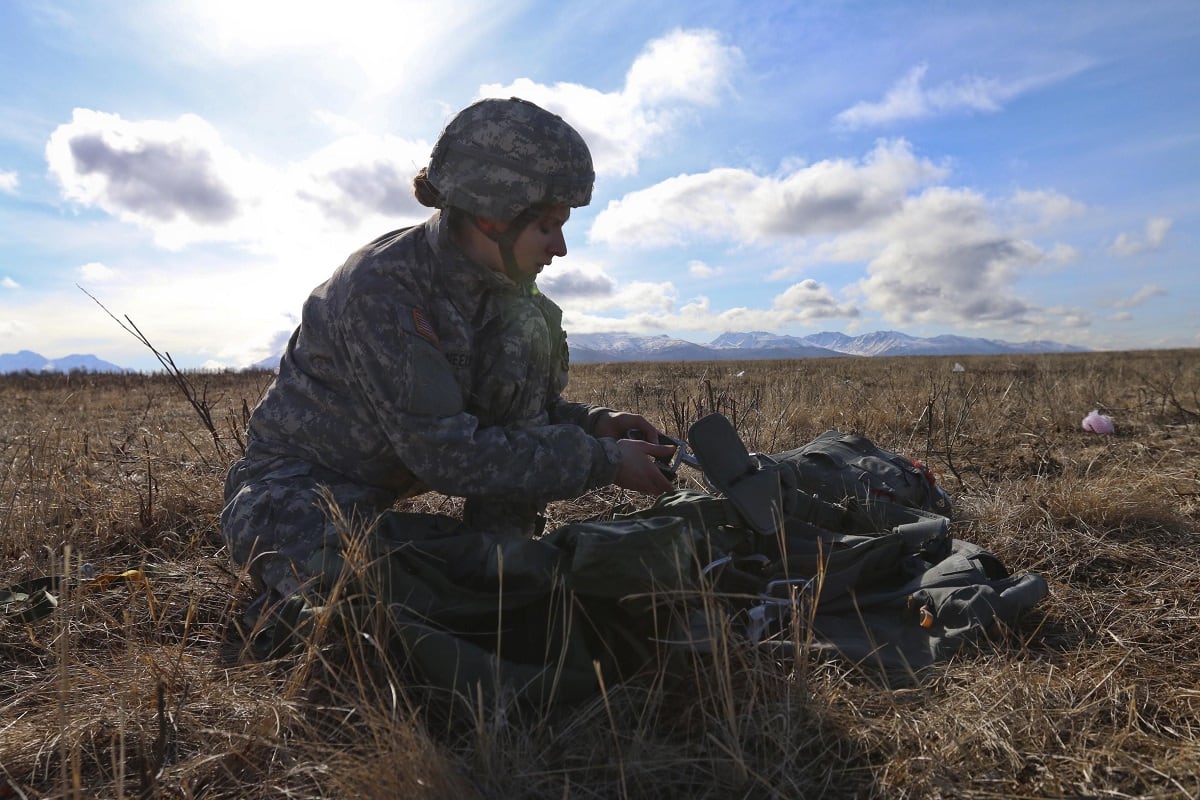As it turns out, the much-derided Expert Action Badge unveiled by the Army in 2017 did not really describe the skills for which it would have been awarded.
Now called the Expert Soldier Badge, Training and Doctrine Command is teeing up the program to go fully live this summer, the head of the Center for Initial Military Training told reporters on Friday.
The qualification, based on 30 basic warrior tasks and battle drills, is still in the validation phase, Maj. Gen. Malcolm Frost said, but is on track for its first test later this year.
“We’re still waiting for the final approval, … an ALARACT will come out, and then we think by this summer we’ll start to see the next test conducted,” he said.

The regulations for administering the test and the qualifications for scoring it have been written, and contingency testing should be underway in early May at Fort Jackson, South Carolina, Frost said.
RELATED

The idea for the badge first became public last March, and it targets everyone who isn’t an infantryman or a combat medic. Initial reactions from soldiers and veterans were mixed, and Army Times was flooded with nearly 500 reader comments about the move.
Some were interested in the opportunity to test their skills in garrison, while others saw it as another participation badge — similar to the way they felt about the CAB — for soldiers who opted out of the risks of the infantry.
The badge would test general soldier skills, Sergeant Major of the Army Dan Dailey told Army Times last spring, similar to how the Expert Infantryman Badge and Expert Field Medical Badge test core infantry and combat medic proficiency outside of deployments.
“I want to build individual skills,” Dailey said at the time. “The reason why we have an EIB and EFMB is so those two fields can maintain their skills during peacetime.”
Offering testing and a badge is a good way to incentivize soldiers and units to train and remain proficient, Dailey said.
As plans for the badge and testing move forward, 25 of the 30 tasks will be mandatory, while commanders will have leeway to pick five additional skills, Frost said, for an extra challenge or to better tailor the test to a unit’s job.
Of the name change, Frost explained that the original Expert Action Badge — a nod to the Expert Infantryman Badge and a derivative of the Combat Action Badge, which is for non-infantry combat engagement — didn’t quite describe the qualification itself.
“If you think about it, you’re awarded the Combat Action Badge for what? A combat act,” he said.
Switching out “combat” for “expert,” as with the infantry version, didn’t quite translate.
“You’re an expert at what action?” he said. “What you want to be an expert in is your basic soldier skills.”
Meghann Myers is the Pentagon bureau chief at Military Times. She covers operations, policy, personnel, leadership and other issues affecting service members.





